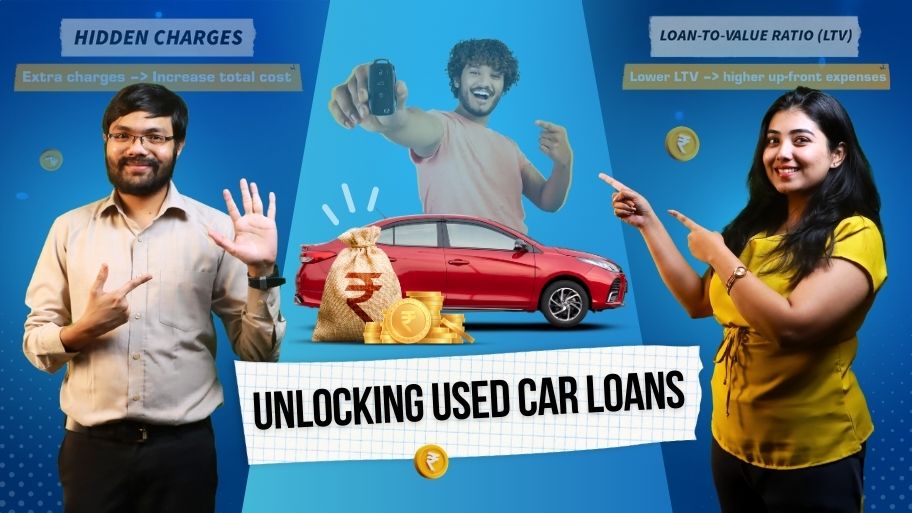Unlocking Used Car Loans
Episodes

E01: The Essentials of Used Car Loans A Quick Overview
03 mins
Owning a car may seem expensive, but second-hand car loans could make it affordable. This video dives into the essentials of financing a pre-owned car. First, you'll learn how used car loans could help you afford a car of your choice for a considerably lower price. With the car as collateral, you can pay manageable EMIs over time. Next, the video explains some of the loan terms usually available. You could get funds for up to 80% of the car’s value. Interest rates typically start from around 10%, while loan tenures range from 12 months to 5 years. Then, we’ll discuss the documents you could need for your loan application. These include your ID and address proof, income details, car registration and insurance documents, and so on. You'll also discover eligibility criteria like age, income, and credit score requirements. Additionally, the video covers factors like the loan-to-value ratio, interest rate comparisons, and the importance of inspecting the car before purchase. Finally, we’ll see how second-hand car loans could make car ownership more affordable but tend to have higher interest rates. With careful research and planning, second-hand car loans might help you hit the road sooner! Stay tuned to Academy for more insights into used-car loans.

E02: How is the Loan Amount for a Used Car Determined
04 mins
Did you know that the loan amount for a second-hand car depends on multiple factors. In this video, we break these down in detail for you to estimate how much financing you might get. First, you’ll learn about the car’s age and condition—well-maintained, newer models generally qualify for higher loans. Here, the Current Market Value (CMV) plays a key role. It represents the car’s present worth based on depreciation, demand, and average market pricing. We’ll also discuss how depreciation impacts the CMV—older, high-mileage, and poorly maintained cars lose value faster. Lenders use the CMV to calculate the Loan-to-Value (LTV) ratio, which determines what percentage of the car’s value can be financed. LTVs for used cars typically range from 70% to 90%. Next, the video will explain how lenders use the LTV ratio to assess risk. A higher LTV means a lower down payment but could also mean stricter loan terms. Other factors like your debt-to-income ratio, repayment ability, and the amount of down payment can also influence the loan amount that you can get. By understanding these elements, you can estimate your potential loan amount and plan your car purchase wisely. Stay tuned to Academy for more insights on used car loans!
What to Watch Next
All

























